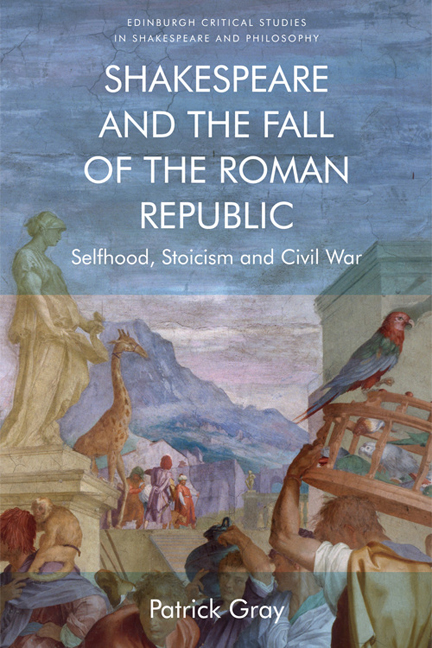Conclusion to Part II - The Last Interpellation
Summary
For Janet Adelman, Antony and Cleopatra both manage in the end to avoid any kind of definitive moral judgement. There is no ‘privileged observer’ who can provide a final answer; no omnipotent judge who can impose a decisive interpellation. Through metatheatrical ‘framing’, the audience is kept at a distance from the action, uncertain which perspective to take, as centuries of divided assessments attest. Anne Barton for her part observes that Octavian seems for a time as if he might possess the power of a final judgement. ‘If only’ he can manage to return to Rome with Cleopatra, leading her in triumph, then ‘he will fix the qualities of the story forever in his terms, which are those of the strumpet and the gorgon, not the lass unparallel’d and the Mars’. Cleopatra will ‘fade into a mere parody queen’. Through suicide, however, the two lovers seem to be able to escape even him. Shakespeare combines Robert Garnier's and Samuel Daniel's earlier versions of the story into what Barton calls a ‘divided catastrophe’: first Antony's death, then Cleopatra’s. Antony, clearly, ‘bungles his death’. Cleopatra, however, ‘dies perfectly, as a tragedy queen’. She not only forces Octavian ‘to become an actor in her tragedy’, but also ‘redeems the bungled and clumsy nature of Antony's death’.
These interpretations are not so much incorrect as incomplete. Barton misses the fact that Shakespeare includes a third catastrophe, this one truly final: ‘doomsday’ (5.2.231). Adelman misses Shakespeare's hints that there might be, in fact, a ‘privileged observer’: God. Adelman recognises that the protagonists’ ‘vision of themselves’ is ‘merely one in a series of competing visions’. As she observes, ‘the device of framing forcibly dissociates us from the lovers’. ‘For much of the play, we live outside their immediate universe and see them with distressing clarity from perspectives which are alien to their own.’ What Adelman does not recognise, however, is that one of those ‘perspectives’ or ‘visions’, introduced through ironic allusion to Scripture, is that of the person Katharine Maus calls ‘the hypostasized divine observer’. As Maus explains, for a Christian, each individual is ‘simultaneously the object of a double scrutiny: of a human vision that is fallible, partial, and superficial, and of a divine vision that is infallible, complete, and penetrating’.
- Type
- Chapter
- Information
- Shakespeare and the Fall of the Roman RepublicSelfhood, Stoicism and Civil War, pp. 259 - 270Publisher: Edinburgh University PressPrint publication year: 2018

